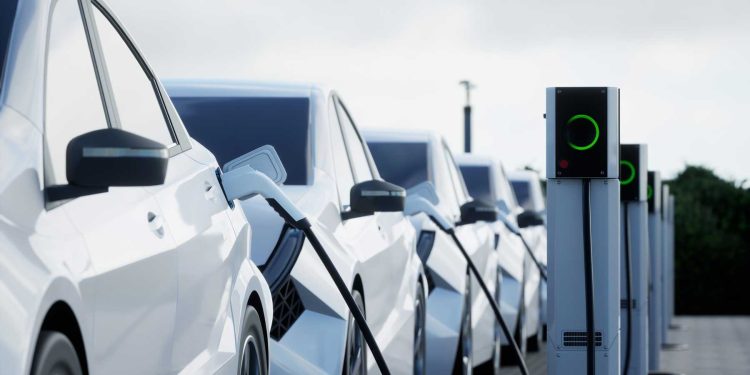Energy Ministry to Propose to Cabinet the Procurement of Electric Vehicles for Ministers as Part of Green Transition Agenda
The Minister for Energy and Green Transition, John Abdulai Jinapor, has disclosed plans to submit a proposal to Cabinet for the procurement of electric vehicles (EVs) for all ministers to be used within the Accra metropolis.
According to the Minister, the initiative forms part of the government’s broader effort to promote green mobility and advance the country’s energy transition objectives. The EVs, he said, would eventually be extended to other government appointees.
Speaking at the commissioning of the Energy Commission’s new 60kW solar-powered electric vehicle charging station, Mr Jinapor noted that the deployment of EVs across government institutions will significantly lower public sector fuel costs while supporting efforts to reduce urban pollution and Ghana’s reliance on imported fossil fuels.
“Transitioning to EVs is both an environmental decision and an economic one,” he said. “Electric buses and vehicles generally have lower operating costs than traditional fossil fuel-powered vehicles. This implies long-term savings for transport operators, reduced fares for commuters, and less exposure to volatile fuel import markets.”
The EV charging station, which was developed by the Energy Commission under its Drive Electric Initiative (DEI), is the latest in a series of policy interventions aimed at promoting the adoption of electric mobility in Ghana. Since 2021, the Commission has led the country’s first E-Mobility Conference and Exhibition, and in 2022 hosted the first public EV charging forum.
In support of a structured EV market, the Commission has completed a baseline study on EV usage as well as a Market Opportunity Study on EV Charging Stations in Ghana, expected to inform investment and planning decisions. A Draft Regulation on Electric Vehicle Charging Stations and Battery Swap Systems has also been finalised, aimed at ensuring safety, standardisation, and technological compatibility in Ghana’s emerging EV sector.
Acting Executive Secretary of the Energy Commission, Eunice Biritwum, highlighted ongoing collaboration with the Ministry of Transport to scale up the use of EVs across the country.
“The initiative represents a significant milestone in our ongoing commitment to promoting clean energy solutions and supporting Ghana’s transition to sustainable transportation. The three core objectives of the electric vehicle charging station are to drive the green mobility agenda, highlight innovation through partnerships, and inspire broader action,” she stated.
The Energy Commission is calling on transport operators, private sector investors, and other stakeholders to support the national green mobility agenda.
The EV transition is expected to modernise Ghana’s public transportation system and improve environmental sustainability in urban centres.









